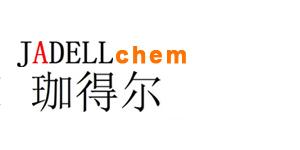Recombinant Human Adiponectin (CHO-expressed) 可提高细胞对胰岛素的敏感性,也可作为治疗糖尿病性肌腱病的潜在蛋白。
Synonyms
rHuAdiponectin; Acrp-30; GBP-28; Apm-1; Acrp 30; Acrp30 ; 重组人源脂联素 (CHO 细胞表达)
Species
HumanSource
CHO Accession
Q15848 Gene ID
9370 Molecular Weight
25-28 kDa AA Sequence
ETTTQGPGVL LPLPKGACTG WMAGIPGHPG HNGAPGRDGR DGTPGEKGEK GDPGLIGPKG DIGETGVPGA EGPRGFPGIQ GRKGEPGEGA YVYRSAFSVG LETYVTIPNM PIRFTKIFYN QQNHYDGSTG KFHCNIPGLY YFAYHITVYM KDVKVSLFKK DKAMLFTYDQ YQENNVDQAS GSVLLHLEVG DQVWLQVYGE GERNGLYADN DNDSTFTGFL LYHDTN Biological Activity
The ED50 is <20 μg/mL as measured by M1 cells. Appearance
Lyophilized powder. Formulation
Lyophilized after extensive dialysis against PBS. Endotoxin Level
<0.2 EU/μg, determined by LAL method. Reconstitution
Reconstitute the lyophilized recombinant Human Adiponectin (CHO-expressed) (rHuAdiponectin) to 100 μg/mL using ddH2O or PBS. Storage & Stability
Lyophilized recombinant Human Adiponectin (CHO-expressed) (rHuAdiponectin) is stored at -20°C. After reconstitution, it is stable at 4°C for 1 week or -20°C for longer. It is recommended to freeze aliquots at -20°C or -80°C for extended storage. Shipping
Room temperature in continental US; may vary elsewhere. Background
Recombinant Human Adiponectin can be used in the injured artery and attenuates vascular inflammatory response. It is reported that physiological concentrations of Recombinant Human Adiponectin suppress tumor necrosis factor-α(TNF-α)-induced endothelial adhesion molecule expression, transformation from macrophage to foam cell, and TNF-α expression in macrophages[1]. Recombinant Human Adiponectin can be used as a potential protein for treating diabetic tendinopathy promotes tenocyte progenitor cells proliferation and tenogenic differentiation in vitro[2]. |



